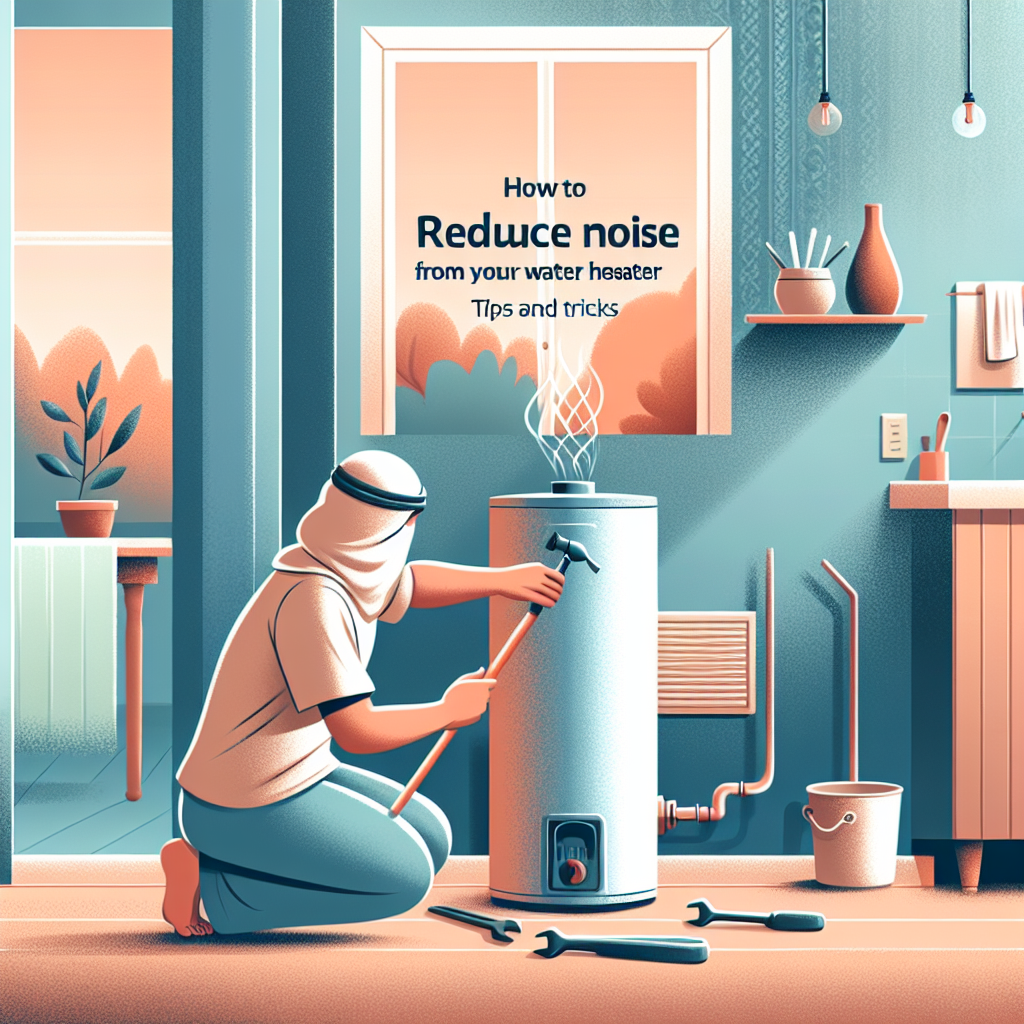Water heaters are essential for modern living, providing us with hot water for showers, laundry, and cooking. However, when your water heater begins to make strange noises, it can become a significant source of frustration. Not only can it be annoying, but it may also indicate underlying issues. Fortunately, there are several ways to reduce noise from your water heater while ensuring it operates efficiently. In this article, we’ll explore various tips and tricks to quiet your appliance and keep your space comfortable.
Understanding the Common Noises
Before diving into solutions, it’s crucial to understand what types of noises your water heater might be making. Common sounds include:
- Banging or knocking: This often indicates that sediment has built up at the bottom of the tank.
- Hissing or sizzling: This could mean that water is dripping onto the burner (for gas heaters) or that air is being released from the pipes.
- Loud rumbling: This noise is typically a result of overheating or buildup of minerals.
By pinpointing the type of noise, you can take more targeted action to resolve it.
Regular Maintenance is Key
Inspect and Flush Your Water Heater
The most effective way to reduce noise is through regular maintenance. Start by flushing your water heater at least once a year. Over time, sediment can accumulate at the bottom, leading to rumbling and banging noises. To flush your heater:
- Turn off the power supply (electric) or the gas valve (gas).
- Connect a garden hose to the drain valve at the bottom of the tank.
- Open the valve and let the water drain out until the tank is empty.
- Close the valve, refill the tank, and turn the power or gas back on.
Check for Anode Rod Corrosion
The anode rod prevents corrosion inside the tank but can become degraded over time. If it’s corroded, it may lead to rust and sediment buildup that causes noise. Inspect the anode rod every two to three years and replace it when necessary.
Make Structural Adjustments
Insulate Pipes and the Heater
Sometimes, noise is caused by the pipes or the heater expanding or contracting during heating cycles. Insulating the pipes and the water heater itself can help dampen these sounds. Use foam pipe insulation and a water heater blanket to absorb vibrations and reduce noise.
Secure Loose Components
Check for any loose parts or connections in and around the water heater. If certain components are vibrating against each other or against the wall, they may amplify the noise. Tighten any loose screws, bolts, or plumbing connections to minimize rattling.
Be Mindful of Location
Create a Soundproof Space
If your water heater is located in a noisy area, such as a laundry room or basement, consider creating a soundproof enclosure. Building a simple soundproof box around the heater using sound-absorbing materials can significantly reduce noise levels. Ensure there is adequate ventilation and access for maintenance.
Relocate If Necessary
In extreme cases, you may want to consider relocating your water heater to a more isolated area of your home. This option may be more complex and costly but can be practical for those who want to enjoy peace and quiet.
Recognize When to Call a Professional
Sometimes, the noise could be a symptom of a more significant issue, such as a failing heating element or a leak. If you’ve tried the above tips and the noise persists, it’s essential to consult a professional plumber or technician. They can correctly diagnose the problem and recommend appropriate solutions.
Conclusion
A noisy water heater doesn’t have to disrupt your peace at home. By understanding the causes of these sounds and implementing the steps outlined above, you can effectively reduce noise and keep your water heater functioning efficiently. Regular maintenance, minor adjustments, and the willingness to seek professional help are key to solving your water heater woes. Embrace these tips, and enjoy a quieter, more comfortable living space!


